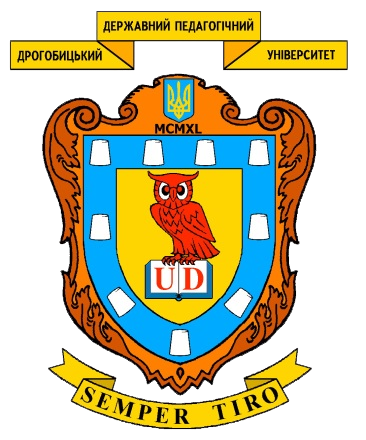COMMUNICATIVE STRATEGIES AND SPEECH TACTICS FOR DISCOURSE ANALYSES
DOI:
https://doi.org/10.24919/2411-4758.2022.246074Keywords:
communicative intension, communicative strategy, the rules of the speech interaction, cooperation principle, indirect speech acts, cooperative and confrontation strategies, functional strategies.Abstract
The article deals with the notion of the communicative strategies and speech tactics as the integral parts of the discourse analysis. The author stresses the fact that the result of the communicative situation may be either communicative cooperation or the communicative confl ict. The third, alternative of the above mentioned situation may be the communicative rivalry (contest). The classifi cation of the communicative strategies, mentioned in the works of some native and foreign scholars are given. Depending on the language resourses of the dialogue discourse the strategies are divided into the communicative and meaningful, and depending on the goal of speaking they are divided into the cooperative, confl ictogenic and manipulative. The level of mildness and toughness of the communicative strategies depends on the conditions of specifi c communicative situation, status and psychological characteristics of the addressee. The article states that according to some linguists the term “strategies and tacticts” came into the linguistics from military art. But the active usage of such terms and their analysis as the language phenomena is not only the consequence of expansion of linguistics into different adjacent subject. Some patterns are conditioned by the process of communication itself and the peculiarities of the cognitive activity of a person. The author emphasizes that in the process of communication one can observe some sequence of actions that are directed towards the establishment, support and completion of the contact between the communicants. Supporting such contacts is the most diffi cult task due to various reasons (cognitive, social and psychological). Speakers’ aspiration to achieve the communicative goals may include the correction or even change of the goals set at the beginning of the conversation because of the inobservance of speaking rules by the communication participants. The article contains the short characteristics of the communicative strategies in the dialogue discourse. It dwells on the fact that the communicative strategy includes planning of the communication depending on different conditions and the peculiarities of the speakers (their social roles, status and the like). So the goals of the communicative strategy is the correction of the model of condudt of the addressee. During the non-confl ict communicative strategy the speaker can manipulate the addressee in some way, infl uence his conduct and actions to achieve their own purpose. In practice, every individual uses in his speech either communicative or confrontative strategy, that’s why the most productive style of the individual verbal behaviour of the person is the flexible one.
References
Блакар, Р. М. (1987). Язык как инструмент социальной власти. Язык и моделирование социального взаимодействия, 88 – 125. Москва.
Гончарова, Н. В. (2002). Аксіологічна структура англомовного діалогічного дискурсу (на мат. англ. худ. прози): дис. … к.ф.н. 10.02.04 – германські мови. КНЛУ.
Дейк, Т. А. ван (1989). Язык. Познание. Коммуникация, 273 – 277. Москва : Прогресс.
Зернецкий, П.В. (1988). Лингвистические аспкты теории речевой деятельности. Языковое общение : Процессы и единицы, 36 – 41. Калинин : Изд-во Kалинин. гос.ун-т.
Ишмуратов, А.Т. (1987). Логический анализ практических рассуждений. Киев : Наукова думка.
Козяревич, Л.В. (2006). Вербальні й невербальні засоби емпатизації діалогічного дискурсу (на матеріалі англомовної прози ХХ століття) : дис. … канд. філол. наук: 10.02.04 – германські мови. Київський національний лінгвістичний ун-т. Київ.
Селіванова, О.А. (2002). Основи лінгвістичної теорії тексту та комунікації. Київ : Фітоцентр.
Тарасова, Е. В. (2000). Синергетические тенденции в современной лингвистике. Вісник Харк. нац. ун-ту, 500, 3 – 9. Харків. Третьякова, В. С. (2006). Конфликт глазами лингвиста. URL : http://www. philology.ru/linguistics2/tretjakova-00.htm.
Фернандо, Ч. (2019). Основи теорії мовної комунікації: навчально-методичний посібник / І.С. Беркун, Н.М. Дзюбак. Кам’янець-Подільський національний університет ім. І. Огієнка. Кам’янець-Подільський.
Черненко, О. В. (2008). Лінгвокогнітивні та прагматичні особливості дискурсивного втілення завершальної фази конфліктної взаємодії (на мат. англ. прози XXст.): дис. …к.ф.н. 10.02.04 – германські мови. КНЛУ.
Шевченко, И.С. (1998). Историческая динамика прагматики предложения. Английские вопросительные предложения 16-20 в. Харків : Константа.
Dijk T.A. van. (1983). Strategies of Discourse Comprehension. New York etc.: Acad. Press.
Hyland K. (1998). Boosting, Hedging and the Negitoation of Academic Knowledge. Tex, 18, 3, 349 – 382.
Pavlidou, T. (1991). Cooperation and the Choice of Linguistic Means. Journal of Pragmatics, 15, 11 – 42.








